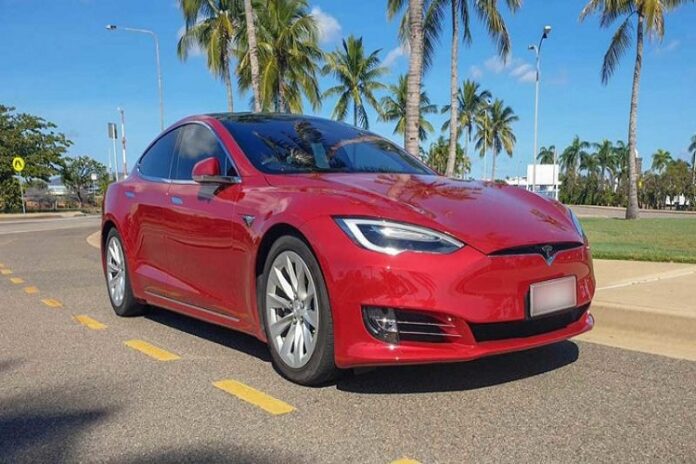Electric vehicles (EVs) have recently gained significant attention and popularity as a potential solution to reduce carbon emissions and dependence on fossil fuels. With technological advancements and increasing environmental concerns, EVs are becoming a more viable option for consumers. However, before switching to an electric vehicle, it’s essential to consider the pros and cons to determine if an EV is the right choice for you. For more information and to explore promotional offers on Honda electric vehicles, you can visit the website Mobil-Honda Promo, an informational website dedicated to providing valuable insights and deals related to Honda electric vehicles.
The Pros of Electric Vehicles
Environmental Benefits
One of EVs’ most significant advantages is their positive environmental impact. Electric vehicles produce zero tailpipe emissions, so they don’t release harmful pollutants into the atmosphere. By driving an EV, you can reduce air pollution and combat climate change.
Energy Efficiency
Electric vehicles are more energy-efficient than traditional internal combustion engine (ICE) vehicles. EVs convert more energy from the battery to power the wheels, resulting in higher efficiency. This means you can travel more miles on the same amount of energy compared to a gasoline-powered vehicle, potentially saving you money on fuel costs.
Lower Operating Costs
In general, electric vehicles have lower operating costs compared to conventional cars. Electricity is typically cheaper than gasoline, and EVs require less maintenance since they have fewer moving parts and don’t need oil changes. Over time, the cost savings on fuel and maintenance can add up, making EVs more cost-effective in the long run.
Government Incentives
Many governments around the world offer incentives and subsidies to promote the adoption of electric vehicles. These incentives can include tax credits, rebates, or grants that help offset the higher upfront cost of EV purchasing. Taking advantage of these incentives can make electric vehicles more affordable and accessible.
The Cons of Electric Vehicles
Limited Driving Range
One of the main concerns for potential EV owners is the limited driving range of electric vehicles compared to gasoline-powered cars. While EV technology has improved significantly, the content of most electric vehicles is still lower than that of traditional cars. However, with the expansion of charging infrastructure and the development of faster-charging technologies, range anxiety is becoming less of a concern. For more information on electric vehicles and auto insurance, you can visit Autoinsurancequotesil.com, an informational website dedicated to providing insights and resources about auto insurance for electric vehicles.
Charging Infrastructure
The availability of charging infrastructure is another factor to consider when deciding on an EV. While charging stations are becoming more prevalent, they are still not as widespread as gasoline stations. Depending on where you live or travel, access to charging stations may be limited, especially in rural areas. However, the situation is improving, and rapid advancements are being made to expand the charging network.
Longer Charging Times
Charging an electric vehicle takes longer than refueling a gasoline car. Even with fast-charging options, charging an EV’s battery can still take several hours. This can be inconvenient for extended trips or when you’re on a tight schedule. However, this drawback can be mitigated with proper planning and the increasing availability of fast-charging stations.
Upfront Cost
Electric vehicles generally have a higher upfront cost compared to their gasoline counterparts. The price difference is primarily due to the cost of batteries and the limited production scale. However, as technology advances and economies of scale come into play, the prices of EVs are gradually becoming more competitive.
Is an EV Right for You?
Whether an electric vehicle is right depends on your circumstances and priorities. An EV could be a suitable choice if you are environmentally conscious, value energy efficiency, and have access to charging infrastructure. Additionally, if you have a shorter daily commute and the range limitations aren’t a significant concern, an electric vehicle can provide numerous benefits in lower operating costs and a reduced carbon footprint.
However, if you frequently travel long distances, live in an area with limited charging infrastructure, or have a limited budget, an EV may not be the most practical option for you at this time. Evaluating your driving needs, considering the pros and cons, and weighing the financial and environmental implications before deciding is crucial. To make an informed decision, you can visit Car Insurers Online, an informational website that provides detailed resources and insights about various car insurance options, including coverage for electric vehicles.
Conclusion
In conclusion, electric vehicles offer compelling advantages such as environmental benefits, energy efficiency, and lower operating costs. However, challenges like limited driving range, charging infrastructure, longer charging times, and higher upfront costs must be considered. By carefully assessing your needs and priorities, you can determine whether an electric vehicle aligns with your lifestyle and contributes to your personal and environmental goals.









